AI Summary
Do you want to export the email logs from your WordPress site? Downloading an export file of logged emails is super useful, as this allows email logs to be viewed in many other programs, such as Excel or Google Sheets.
This tutorial will show you all the options for exporting email logs in WP Mail SMTP.
In This Article
Before getting started, you’ll need to enable email logging and send at least one email from your site.
Exporting Multiple Email Logs
To export multiple email logs at once, you’ll first need to go to WP Mail SMTP » Tools and click on the Export tab.
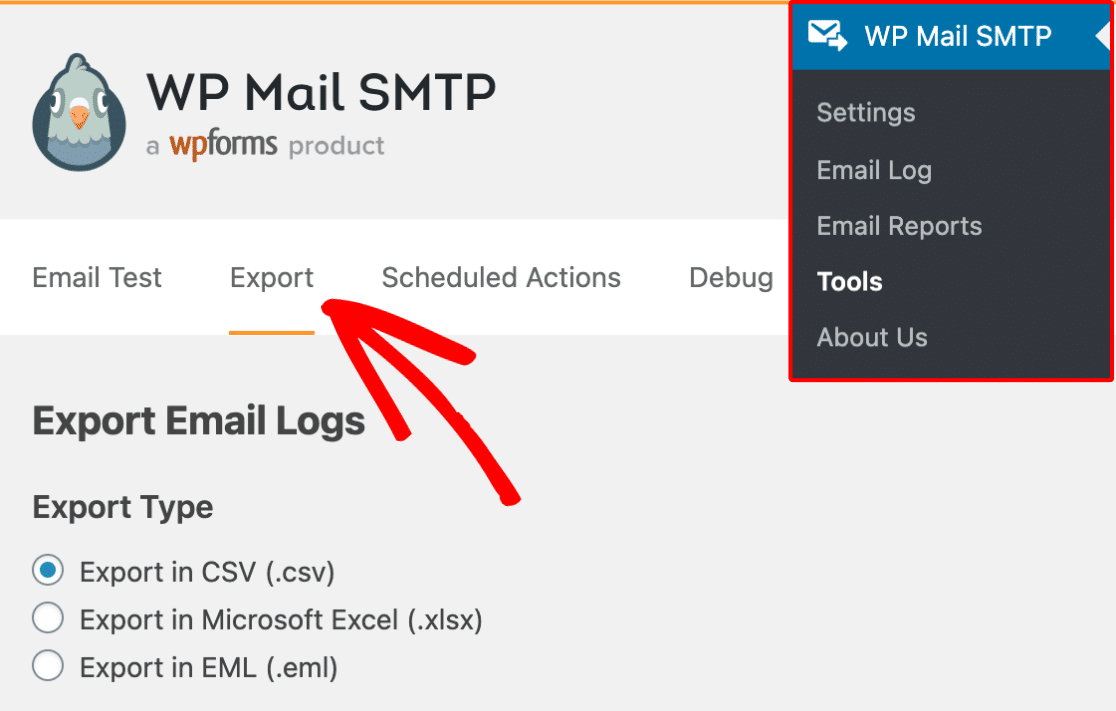
Once the Export tab is open, you’ll see the Export Email Logs section at the top of the page, along with many exporting options. We’ll go over each of the options below:
Export Type

- Export in CSV (.csv): Generate a downloadable CSV of your email logs
- Export in Microsoft Excel (.xlsx): Export your email logs in an Excel format
- Export in EML (.eml): Download your email logs as an EML file
Note: If you choose Export in EML (.eml), you won’t have the option to modify the Common Information or Additional Information sections.
Common Information
This includes basic information about your emails, such as who sent them, who they were sent to, and when they were sent.
All of the options in this section are included by default. However, if you’d like to exclude options, simply click the checkbox next to the corresponding option.
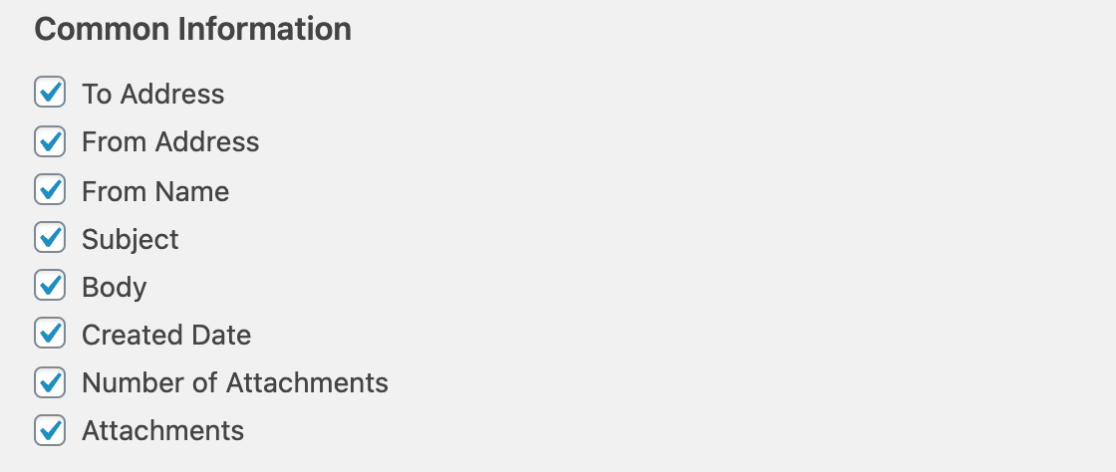
- To Address: The email address that the email was sent to
- From Address: The email address of the sender
- From Name: The from name of the sender
- Subject: The subject of the email
- Body: The content of the email body
- Created Date: The date the email was created
- Number of Attachments: The number of attachments included in the email
- Attachments: A link to the attached file(s)
Additional Information
In addition to common information, you can choose to add many additional columns of data to your export. Click the checkbox next to each option you’d like to include.
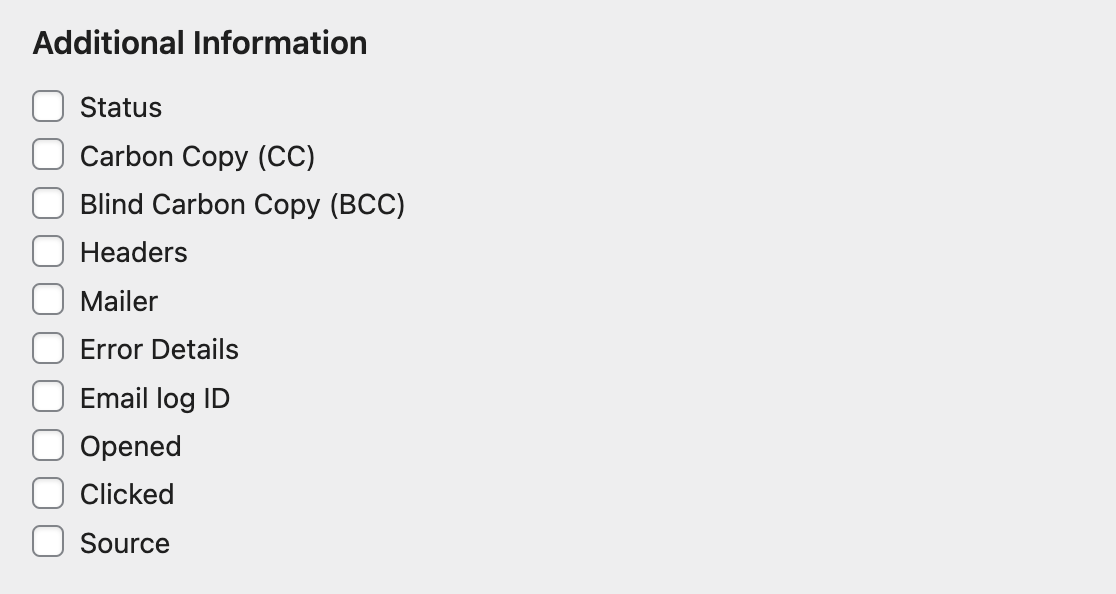
- Status: The status of the email (Delivered, Not Sent, Sent, Waiting for confirmation)
- Carbon Copy (CC): Includes any carbon copy email addresses
- Blind Copy (BCC): Includes any blind copy email addresses
- Headers: The email’s headers
- Mailer: The mailer that was used to send the email
- Error Details: Details of any errors that occurred while sending the email
- Email Log ID: The unique ID for each email log
- Opened: Allows you to see if the email recipient has opened the email or not
- Clicked: Allows you to see if the recipient has clicked on any links within the email
- Source: The initiator of the email (WP Mail SMTP, WP Core, WPForms, etc.)
Custom Date Range
If you’d like, you can choose a custom date range for the email logs that you’d like to export.

Search
Additionally, you can filter email logs that only meet your search criteria. This option allows you to search by Email Addresses, Subject & Headers, and Content.

Once you’ve selected all the options you’d like to include in your export, click the Download Export File button to initiate the download.

Exporting a Single Email Log
In some cases, you may only want to export a specific email log. To do this, you’ll first need to click on WP Mail SMTP » Email Log in the WordPress admin menu.
This will take you to the main email log page, displaying all logged emails. By default, the newest logs will be shown at the top of the list.
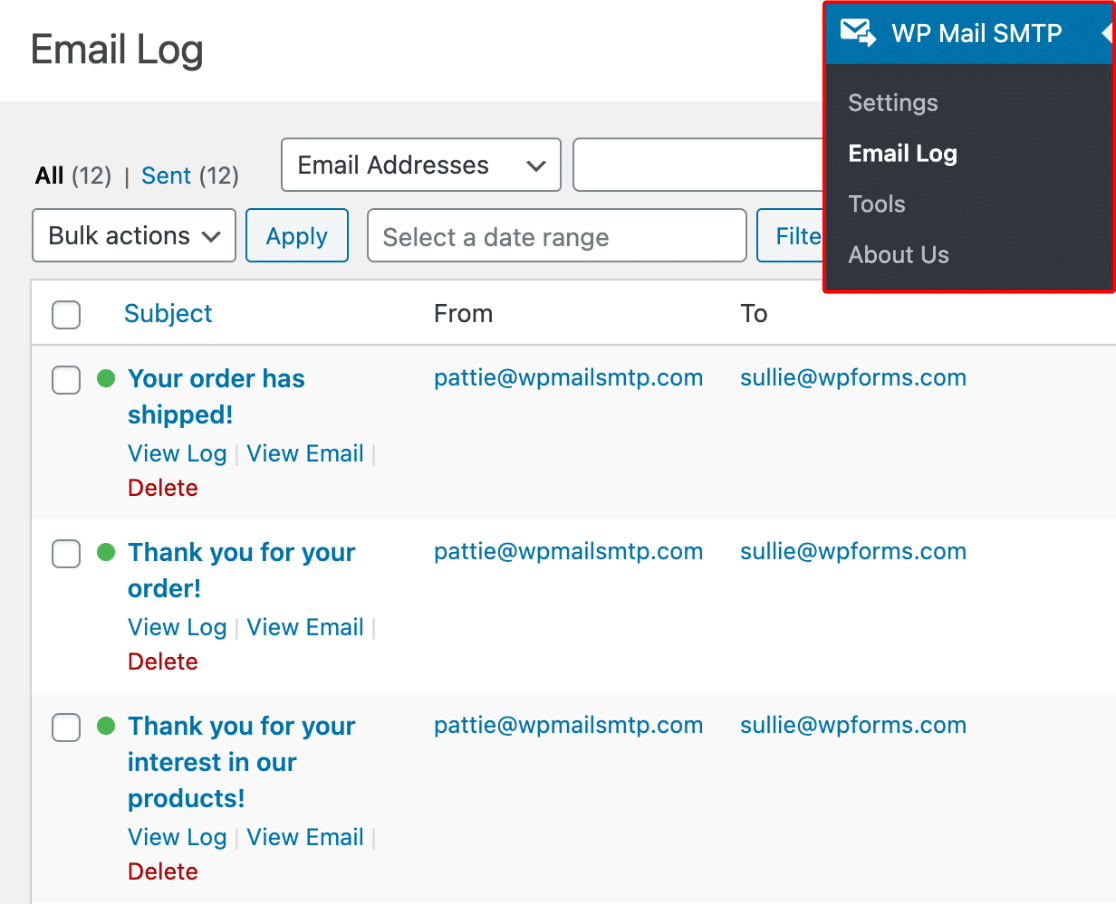
To see more details for a specific entry, you can click on the Subject for any log. This will open up a page for the individual email log.
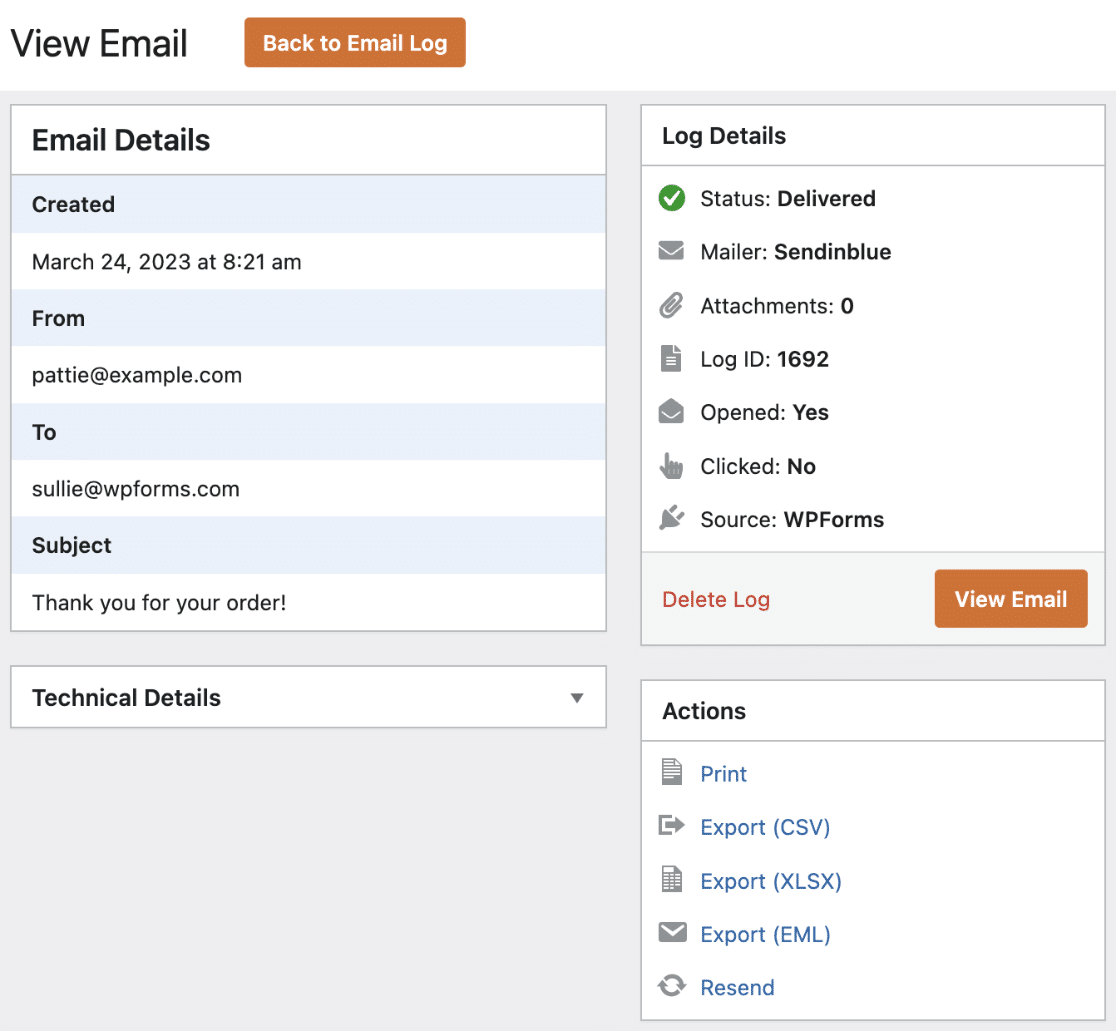
Within the right Actions menu of the individual email log’s page, you’ll see three export options. From this list, you can select Export (CSV) to download your email log in CSV form, Export (XLSX) to download your email log in an Excel format, or the Export (EML) option to download your email log as an EML file.
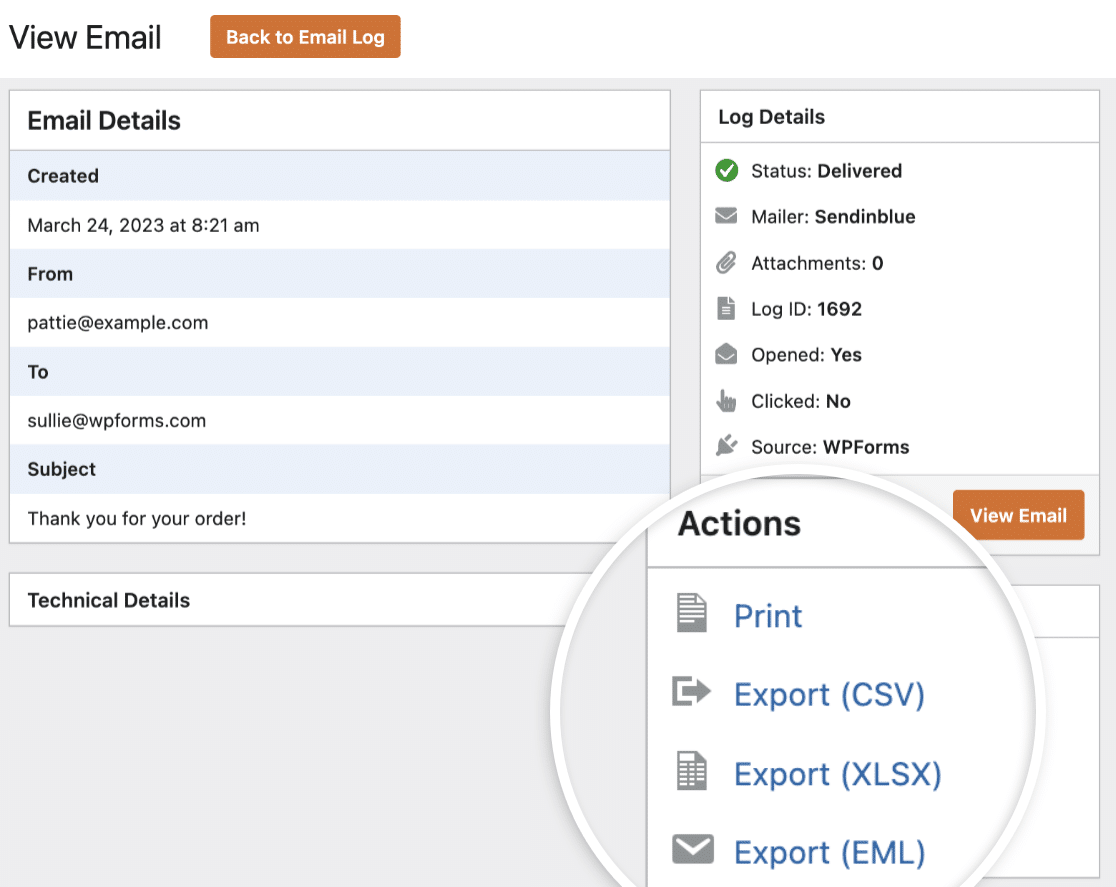
Note: Want to learn how to print individual email logs? See our printing email logs guide for more details.
Once you click one of these export options, the download should begin immediately.
That’s it! We hope this tutorial helped you learn how to export your WP Mail SMTP email logs.
Next, would you like to view detailed reports of emails sent from your WordPress site? With Email Reports, you can easily keep track of how your emails are performing on your site.
